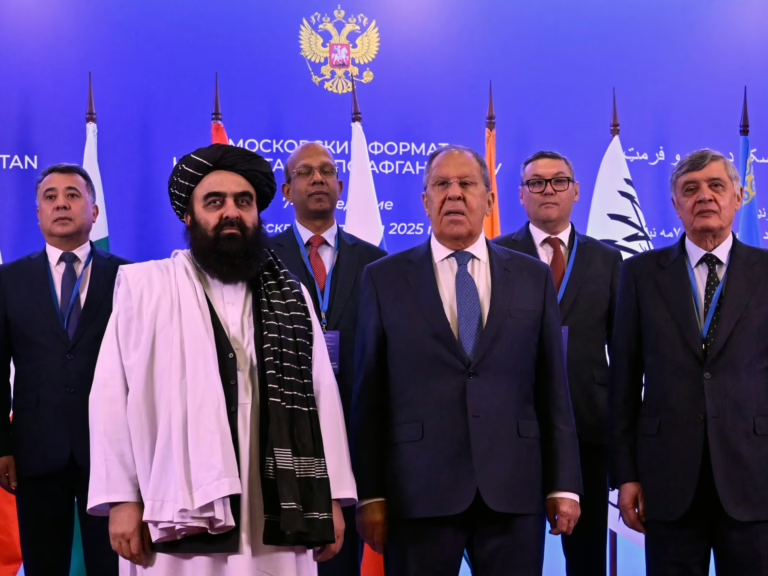A coalition of neighboring nations, including India, has collectively opposed the establishment of foreign military bases in Afghanistan.
Countries bordering Afghanistan, with India among them, have presented a rare consensus by rejecting any foreign military installations within Afghan territory. This stance comes amid US President Donald Trump’s efforts to reclaim control over the strategically significant Bagram airbase.
In a joint declaration issued Tuesday, participants of the Moscow Format Consultations on Afghanistan-which brings together regional rivals such as India and Pakistan-expressed their steadfast commitment to supporting Afghanistan’s sovereignty, unity, and peaceful development. The group also includes Russia, China, Iran, and several Central Asian states, all of whom firmly oppose any renewed American military presence in Afghanistan.
The statement explicitly condemned attempts by external powers to establish military infrastructure in Afghanistan or its neighboring countries, labeling such moves as detrimental to regional peace and stability.
While the language mirrors that of previous years, the declaration signals widespread regional resistance to Trump’s proposal to reoccupy Bagram, a base the US handed over to the Taliban five years ago as part of a withdrawal agreement.
India’s endorsement of this position reflects its delicate balancing act between its longstanding partnership with the US and its evolving engagement with the Taliban, a group it once firmly opposed but has recently begun to engage diplomatically.
Highlighting this shift, India is preparing to host Taliban Foreign Minister Amir Khan Muttaqi for a landmark visit to New Delhi from October 9 to 16.
Following his participation in the Moscow forum, Muttaqi reiterated Afghanistan’s firm rejection of any foreign military presence. “Afghanistan has always maintained its independence and sovereignty, never accepting foreign troops on its soil,” he stated. “Our policy remains unchanged: to preserve Afghanistan’s freedom and autonomy.”
Last month, Trump warned of dire consequences if Afghanistan refused to return control of Bagram, citing its strategic proximity to China. However, the Taliban dismissed these demands.
Geographically, Bagram lies approximately 800 kilometers (around 500 miles) from the Chinese border and roughly 2,400 kilometers (about 1,500 miles) from China’s missile manufacturing facilities in Xinjiang.
Trump has repeatedly emphasized China as a key factor in his desire to regain Bagram, once remarking in London that the base is “just an hour away from where China produces its nuclear weapons.”
Nevertheless, current and former US officials have expressed skepticism about the feasibility of retaking Bagram, warning that such a move could resemble a full-scale invasion, necessitating a deployment of over 10,000 troops and sophisticated air defense systems.
Ashley Jackson, co-director of the Geneva-based Centre on Armed Groups, noted, “The logistical complexities involved in negotiating a redeployment and subsequent handover would be immense and protracted, with uncertain benefits for either party’s strategic goals.”
Bagram, a vast military complex, served as the primary US base throughout the two-decade conflict following the September 11, 2001 terrorist attacks orchestrated by al-Qaeda.
During this period, thousands were detained there without formal charges or trials, with numerous reports of mistreatment and torture under the guise of counterterrorism operations.
In 2021, the Taliban regained control of Bagram after the US withdrawal, a process initiated under Trump’s administration and completed during Joe Biden’s presidency, coinciding with the collapse of the Afghan government.






















